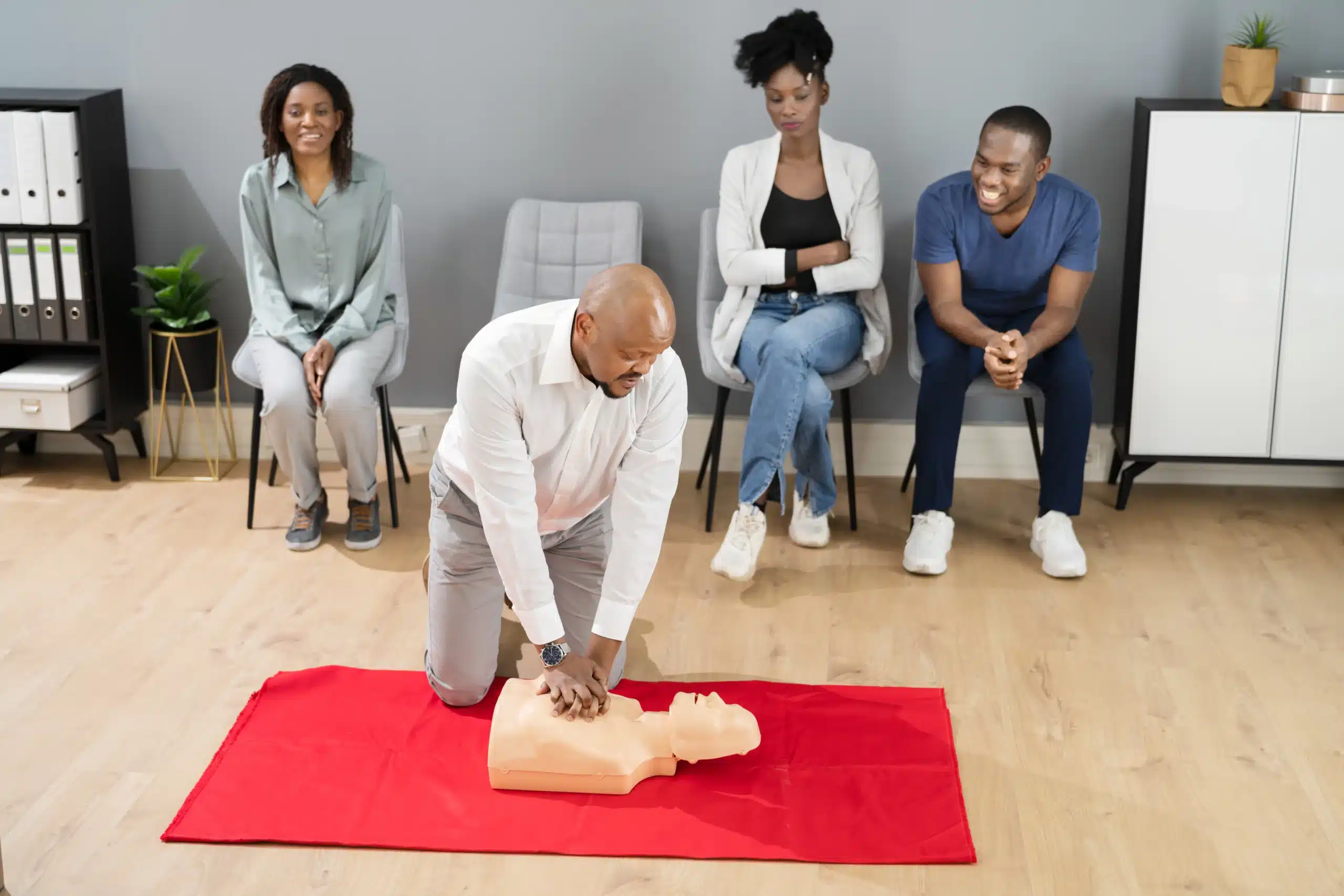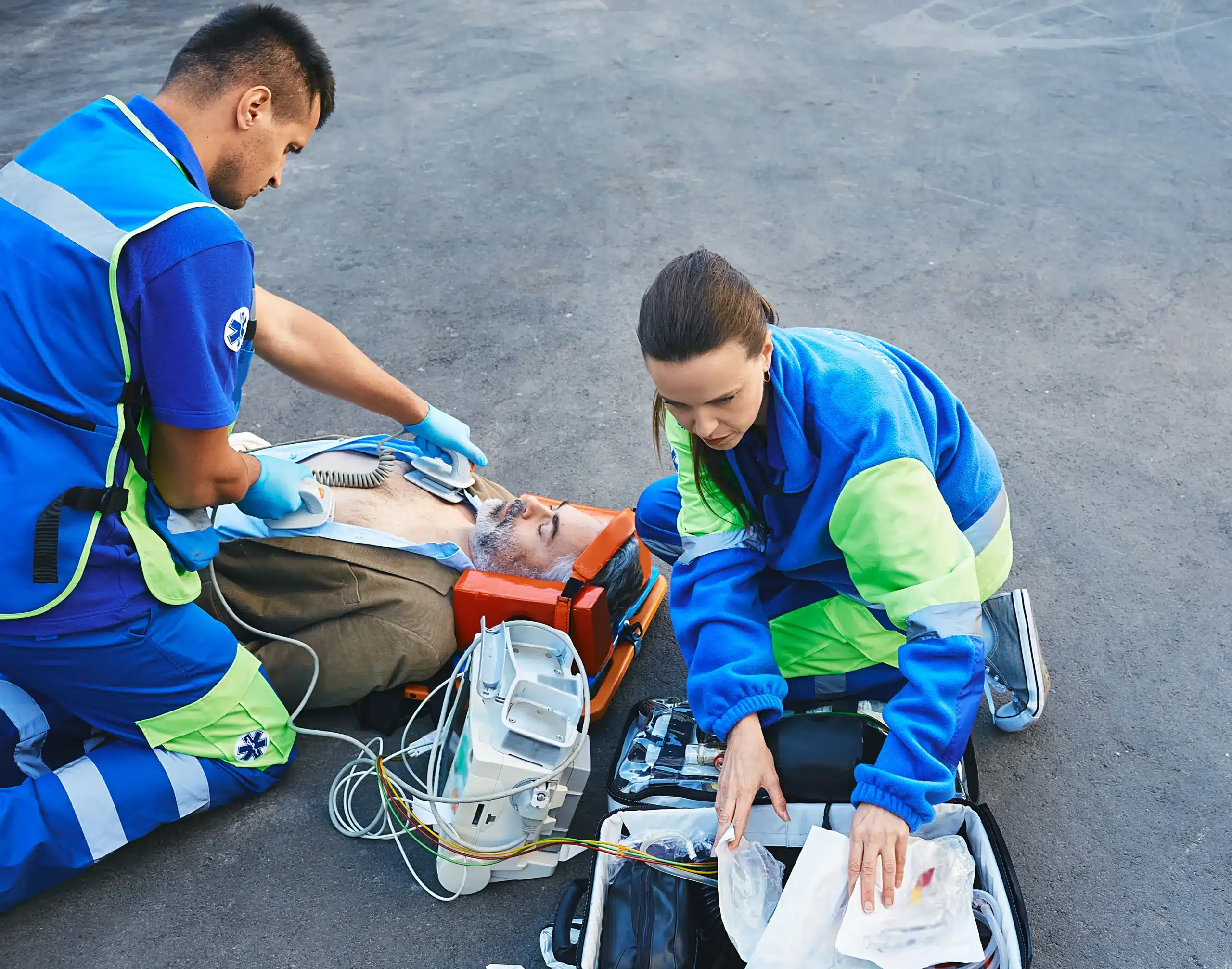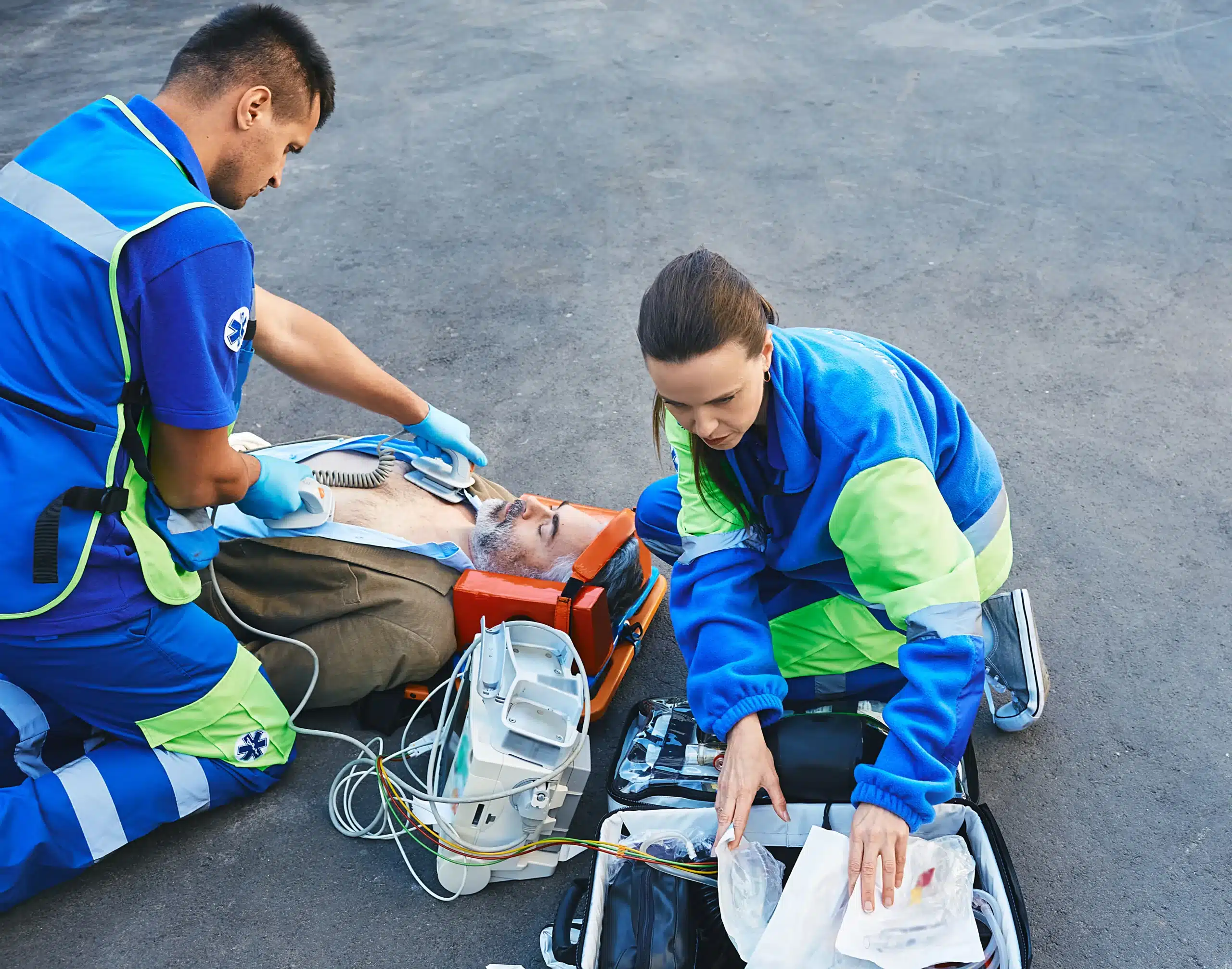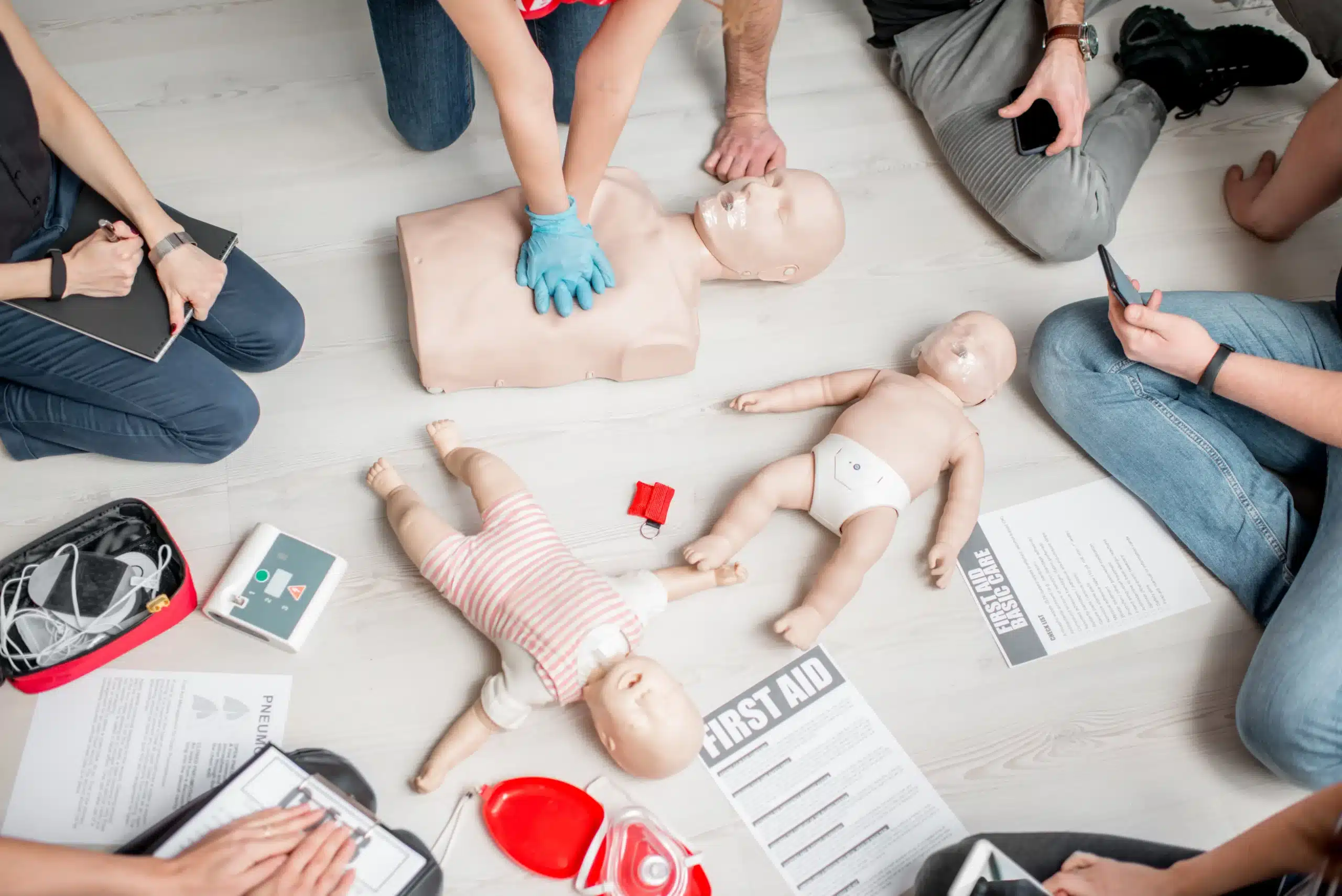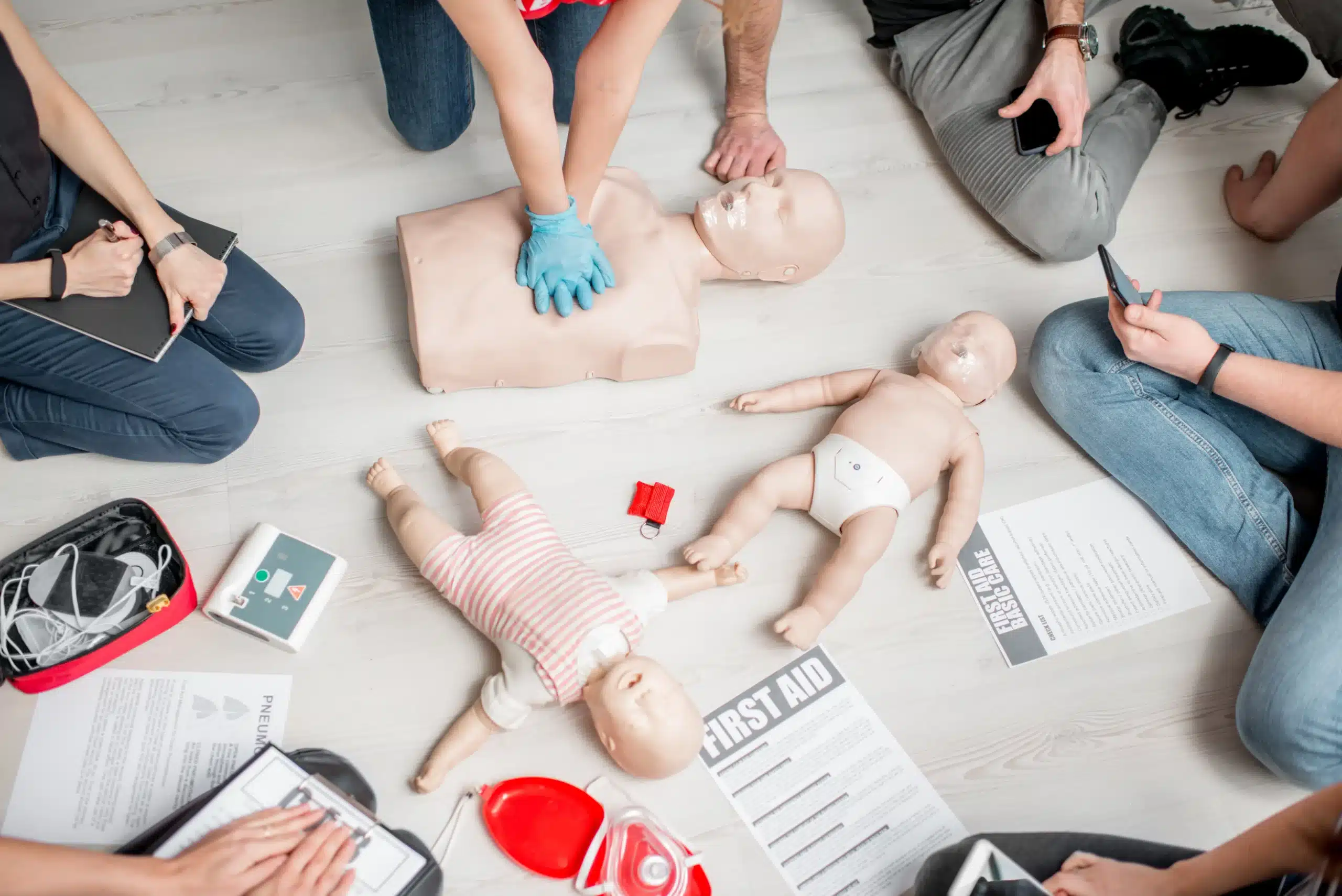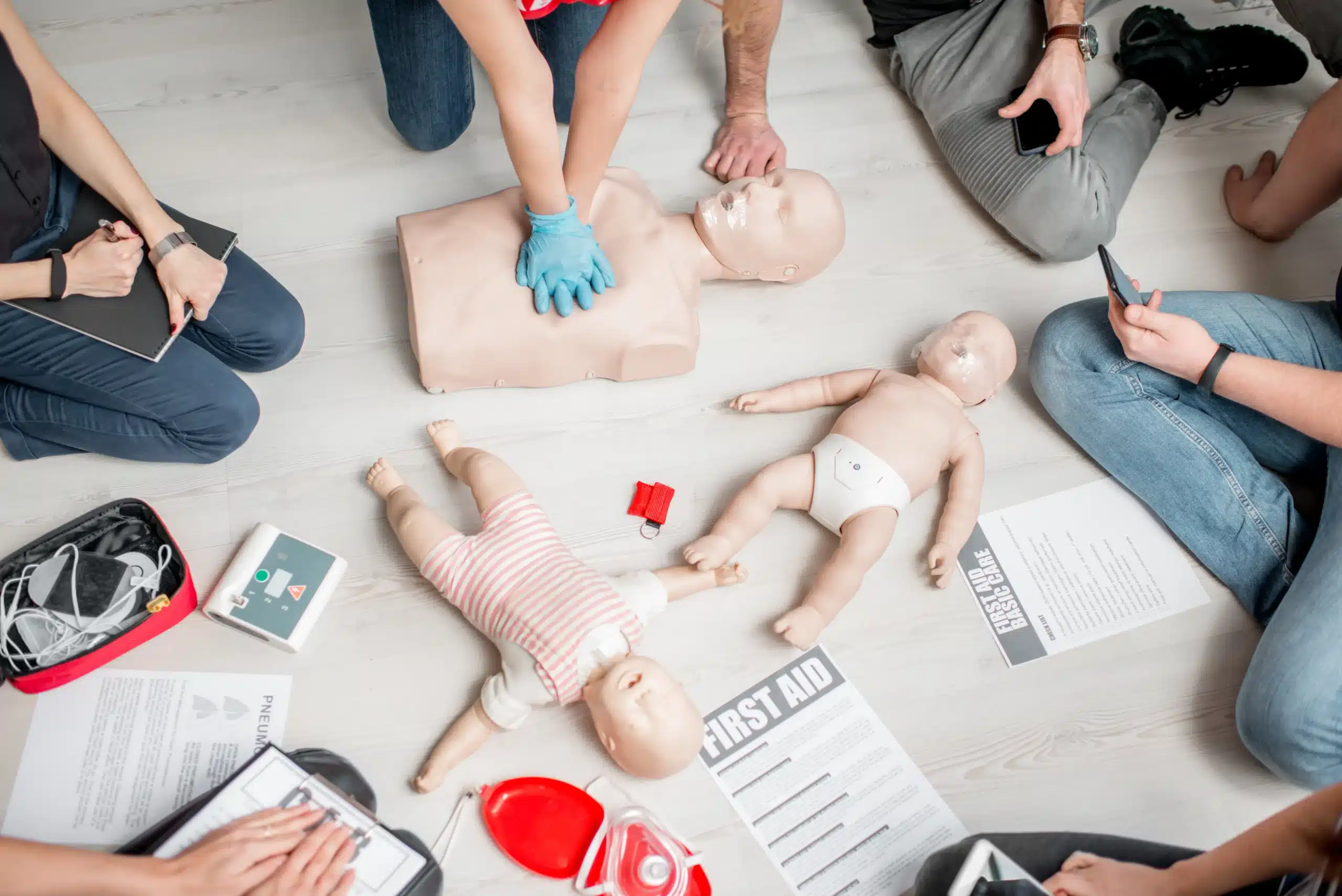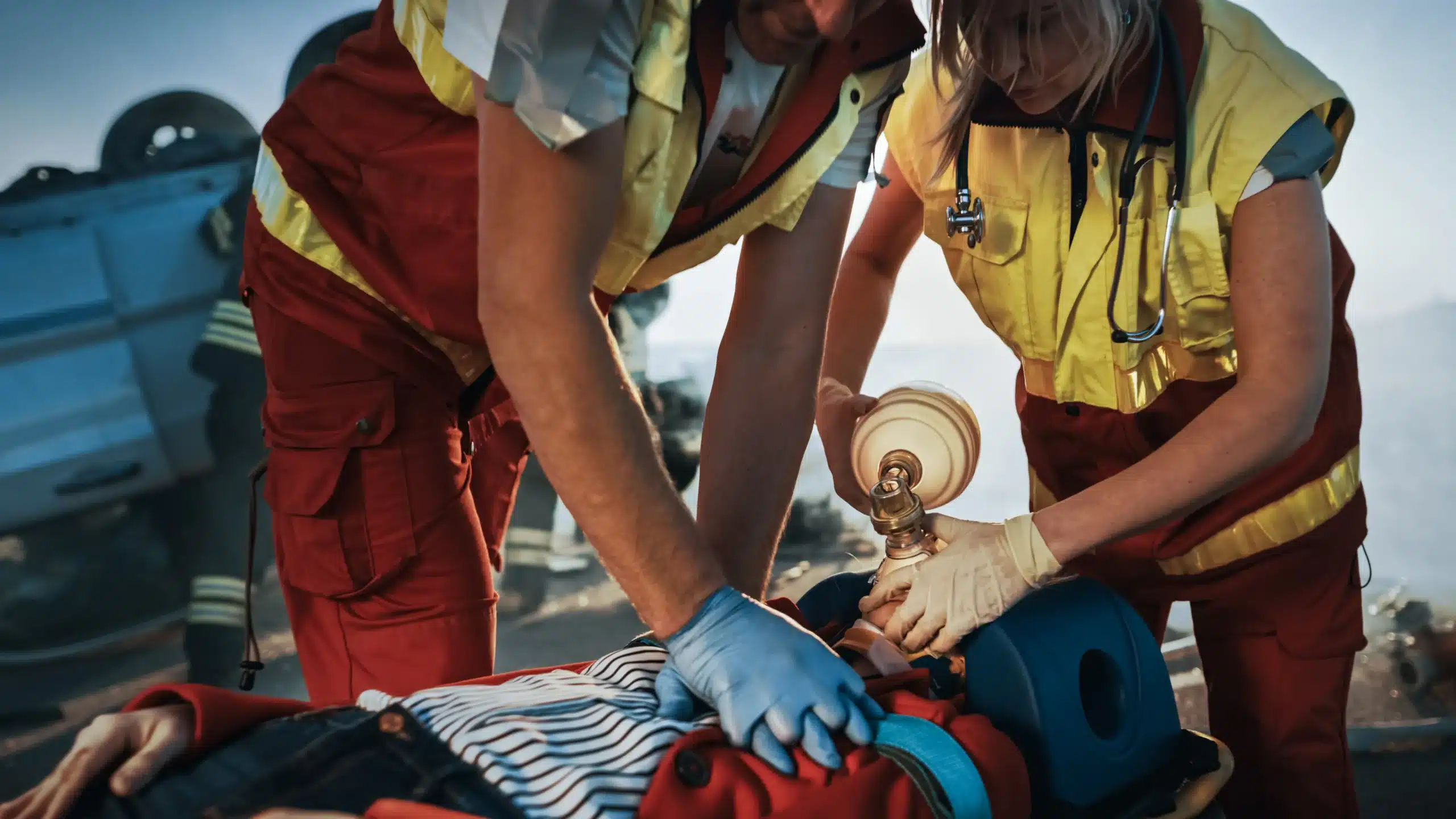Working in healthcare, you know how quickly situations can turn critical. Seconds matter. Having rock-solid life-saving skills isn’t just important—it’s essential. That’s where BLS for healthcare providers in Walnut Creek comes in. This training goes beyond basic CPR, giving you the advanced knowledge and practical skills to handle emergencies with confidence. Whether you’re a seasoned healthcare professional or just starting your journey, this post breaks down everything you need to know about BLS certification, from course options and key skills to finding the right training program in Walnut Creek. We’ll cover top providers, what to expect during training, and how to keep your skills sharp. Let’s get started.
Key Takeaways
- BLS builds on basic CPR: It provides healthcare providers with the advanced skills to manage life-threatening emergencies, going beyond chest compressions and rescue breaths. Find a course format—in-person, blended, or online—that suits your learning style.
- Select a BLS course strategically: Look for experienced instructors, ample hands-on practice, and a program that fits your schedule and budget. Compare providers and consider the overall value, not just the price tag.
- Stay sharp after certification: Keep your skills current with regular practice and refresher courses. The RQI program offers a flexible way to maintain your BLS, ACLS, and PALS certifications.
What is BLS?
What is BLS and why is it important?
BLS stands for Basic Life Support. It’s a critical certification for healthcare providers, like doctors, nurses, EMTs, and other first responders. Think of it as a more advanced level of CPR. While CPR teaches the basics of resuscitation, BLS builds upon that foundation, equipping you with the skills to manage life-threatening emergencies like cardiac arrest, respiratory distress, and airway obstructions. It’s not just about chest compressions and rescue breaths; BLS training provides a deeper understanding of the physiological processes involved and emphasizes high-quality CPR techniques. This advanced knowledge is essential for anyone working in a healthcare setting, ensuring they can provide effective and timely care during critical situations. If you’re considering a career in healthcare, BLS certification is often a prerequisite.
Key skills you’ll learn in BLS training
BLS training covers a comprehensive range of life-saving skills based on the latest American Heart Association guidelines. You’ll learn how to perform high-quality CPR for adults, children, and infants, adapting your technique to each age group. The training also covers the proper use of an AED (automated external defibrillator), a crucial device for restoring a normal heart rhythm during cardiac arrest. Beyond CPR and AED use, you’ll master bag-mask techniques for providing assisted ventilation, learn effective methods for relieving choking, and practice rescue breathing. BLS courses often incorporate realistic scenarios and simulations to help you build confidence and prepare you to respond effectively in real-world emergencies. Many programs use a blended learning format, combining online coursework with in-person skills sessions for a well-rounded learning experience.
Find BLS Certification in Walnut Creek
Finding the right BLS certification course depends on your learning style and schedule. Let’s explore a few options available in Walnut Creek.
In-person training: Get hands-on experience
In-person BLS training gives you hands-on practice in a controlled environment. This is especially valuable for healthcare providers, allowing you to develop muscle memory and confidence in your skills. You’ll work with instructors and other students, giving you the chance to ask questions and get immediate feedback. If you learn best by doing and value direct interaction, in-person training might be the perfect fit. Our BLS certification courses offer this hands-on learning experience.
Online courses: Train on your schedule
Juggling work, family, and other commitments? Online BLS courses offer the flexibility to learn at your own pace, anytime, anywhere. You can review materials as often as needed and complete the theoretical portion of the training from home. This option is ideal for those who prefer self-directed learning or have limited availability for in-person classes. Explore our online BLS resources to see if this approach works for you. We also offer a low price guarantee on all our courses.
Blended learning: Combine online and in-person learning
Blended learning combines the best of both worlds. You’ll cover the theoretical material online at your convenience and then attend an in-person skills session to practice. This approach offers a comprehensive understanding of BLS techniques, providing both the flexibility of online learning and the hands-on experience of traditional classes. Our blended learning BLS courses provide this balanced approach.
Top BLS Course Providers in Walnut Creek
Finding the right BLS course provider is key to receiving quality training. Here’s a rundown of some popular options in Walnut Creek:
Safety Training Seminars
Safety Training Seminars, a woman-owned American Heart Association Training Center, offers a comprehensive range of courses, including BLS, ACLS, PALS, CPR, and First Aid. They focus on providing high-quality training at affordable prices, with classes available seven days a week. Serving Walnut Creek, Concord, and Pleasant Hill, they make it convenient to find a class that fits your schedule. Learn more on their BLS course page.
American Heart Association
While the American Heart Association doesn’t directly conduct courses, they set the standards for BLS training. Their RQI program (Resuscitation Quality Improvement) is a popular choice for healthcare professionals seeking BLS, ACLS, and PALS certification. It’s a modern and efficient way to stay up-to-date on the latest resuscitation techniques. Many training centers in Walnut Creek, including Safety Training Seminars, offer RQI courses.
Red Cross
The Red Cross is another well-known provider of BLS training. Their BLS course is designed for healthcare providers and public safety professionals. They often use a blended learning format, combining online coursework with in-person skills sessions. This allows for flexibility while still providing hands-on practice.
Walnut Creek CPR Training Center
Walnut Creek CPR Training Center is an American Heart Association-authorized training center with extensive experience in CPR and advanced life support training. They offer a range of courses, including BLS for Healthcare Providers.
AllCPR Training Walnut Creek
AllCPR Training offers BLS certification courses in Walnut Creek, equipping students with the skills to respond to emergencies in various settings. They are an American Heart Association-certified training center, ensuring their curriculum meets the latest guidelines.
Choose the Right BLS Course
Picking the right BLS course is a big deal, especially for healthcare providers. It’s not just about getting a certificate; it’s about mastering skills that could save a life. Here’s what to consider when choosing a course:
Check instructor qualifications and experience
Look for courses taught by experienced, certified instructors with a strong healthcare background and a passion for teaching. Inquire about their experience and certifications—a qualified instructor can significantly impact your learning. Safety Training Seminars prioritizes experienced instructors dedicated to providing high-quality training. A good instructor will help you develop those crucial life-saving skills you’ll use in your career and everyday life.
Consider course length and schedule
BLS courses vary in length, typically running between four and six hours. Consider your schedule and find a course that fits. Some providers offer weekend or evening classes to accommodate busy professionals. Review our BLS course schedule to see what works best for you.
Understand certification validity and renewal
Before signing up, understand how long your BLS certification is valid and its renewal process. Most certifications are valid for two years. Knowing the renewal requirements upfront helps you stay current without last-minute scrambling. Our RQI program offers a convenient renewal option.
Look for hands-on practice
Hands-on practice is essential for mastering BLS skills. Choose a course with ample opportunities to practice CPR and other life-saving techniques on mannequins. This practical experience builds your confidence and prepares you for real-life emergencies. Our BLS courses emphasize hands-on learning to ensure you’re fully prepared.
Compare costs and value
BLS course costs can vary. Compare prices, but don’t solely focus on the cheapest option. Consider the overall value—a slightly more expensive course might offer more hands-on practice, experienced instructors, or more convenient scheduling. Our low price guarantee ensures you’re getting the best value. We believe high-quality training should be accessible.
Get the Most Out of Your BLS Certification
So you’re ready to get your BLS certification—fantastic! Whether you’re entering the healthcare field or renewing your credentials, here’s how to make the most of your training. We’ll cover how to prepare, what to expect, and tips for staying sharp after you’re certified.
Prepare for your course
BLS courses in Walnut Creek often use a blended learning format. This means you’ll complete some online coursework before attending an in-person skills session. Check with your chosen provider to see if they offer this option. If so, make sure you finish the online portion before your in-person training. This allows you to focus on hands-on practice during the skills session. It’s also a good idea to review basic life support skills like CPR and using an AED beforehand, even if it’s just a quick refresher.
Know what to expect during training
AHA BLS CPR classes in Walnut Creek equip you with the skills to handle cardiac emergencies. These classes usually run between four and six hours, covering essential techniques like chest compressions, rescue breaths, and using an AED. You’ll also learn how to recognize the signs of a heart attack and stroke. Expect a combination of lectures, demonstrations, and hands-on practice. Don’t be afraid to ask questions! Your instructor is there to guide you and ensure you feel confident performing these life-saving skills.
Keep your skills sharp after certification
Your BLS certification is valid for two years. To maintain your skills and stay up-to-date on the latest guidelines, consider enrolling in a refresher course before your certification expires. The American Heart Association RQI program is a popular option for healthcare professionals in Walnut Creek seeking BLS, ACLS, and PALS recertification. RQI offers a flexible, self-paced approach to skills maintenance, allowing you to renew your certification quickly and efficiently. Regular practice is key to retaining these critical skills, so consider incorporating them into your workplace training or personal practice.
BLS Certification: Pricing and Options
Compare Provider Costs
BLS certification costs in Walnut Creek typically range from $70 to $150. Several factors influence the final price, including the training provider, the course format (in-person, blended, or online), and included materials. Comparing prices from different providers, like Safety Training Seminars, the American Red Cross, and other local training centers, helps you find the best value. Remember to factor in any extra costs for study materials or online access. This guide to BLS for Healthcare Providers in Walnut Creek offers a helpful starting point for your research.
Find Discounts and Package Deals
Many training centers offer discounts or package deals, especially for groups or multiple course registrations. For example, if you need both BLS and ACLS certification, check if a provider offers a discounted rate for both. Safety Training Seminars prioritizes affordable training and often has ongoing promotions. Visit their site for their low price guarantee and current deals. You might be surprised at how much you can save.
Select the Best Course for You
Think about your learning style and schedule. If you’re a hands-on learner, an in-person BLS course might be best. If your schedule is tight, consider an online or blended learning option. Safety Training Seminars offers various AHA-certified BLS courses, plus options like CPR, ACLS, PALS, and First Aid. This flexibility lets you choose training that aligns with your career goals. Also, consider whether you want a course focused solely on BLS or one that bundles other relevant certifications like CPR. The right combination can save you time and money.
Related Articles
- BLS Certification in Pleasant Hill: A Complete Guide
- BLS Courses in Walnut Creek: A Complete Guide
- HeartCode BLS Walnut Creek: Your Certification Guide – Walnut Creek CPR Classes
- BLS Courses in Concord: Find the Right Class for You – Walnut Creek CPR Classes
- BLS for Healthcare Providers in Pleasant Hill – Walnut Creek CPR Classes
Frequently Asked Questions
What’s the difference between CPR and BLS?
CPR focuses on the immediate steps to take during a cardiac or breathing emergency. BLS builds on those CPR skills, adding a deeper understanding of the underlying science and more advanced techniques like using a bag-mask device and working as part of a team. Think of BLS as CPR amplified for healthcare professionals.
How do I choose the right BLS course in Walnut Creek?
Consider a few things: your learning style (hands-on vs. online), your schedule, the instructor’s experience, and the course cost. Don’t just go for the cheapest option; look for a course that offers good value and aligns with your needs. Check if the provider offers a blended learning format, combining online learning with in-person skills practice.
How long is a BLS certification valid, and how do I renew it?
BLS certifications are typically valid for two years. You’ll need to take a refresher course to renew. The RQI program is a popular option for efficient renewal, allowing you to maintain your skills and stay current with the latest guidelines.
What if I have a busy schedule? Can I still get BLS certified?
Absolutely! Many providers offer flexible options like online courses, blended learning (combining online and in-person training), weekend classes, and evening sessions. This makes it easier to fit BLS training into even the most demanding schedules.
Why is hands-on practice so important for BLS?
BLS involves performing life-saving techniques under pressure. Hands-on practice helps build muscle memory and confidence, so you can react quickly and effectively in a real emergency. It’s not just about knowing what to do; it’s about being able to do it efficiently and calmly when it matters most.
